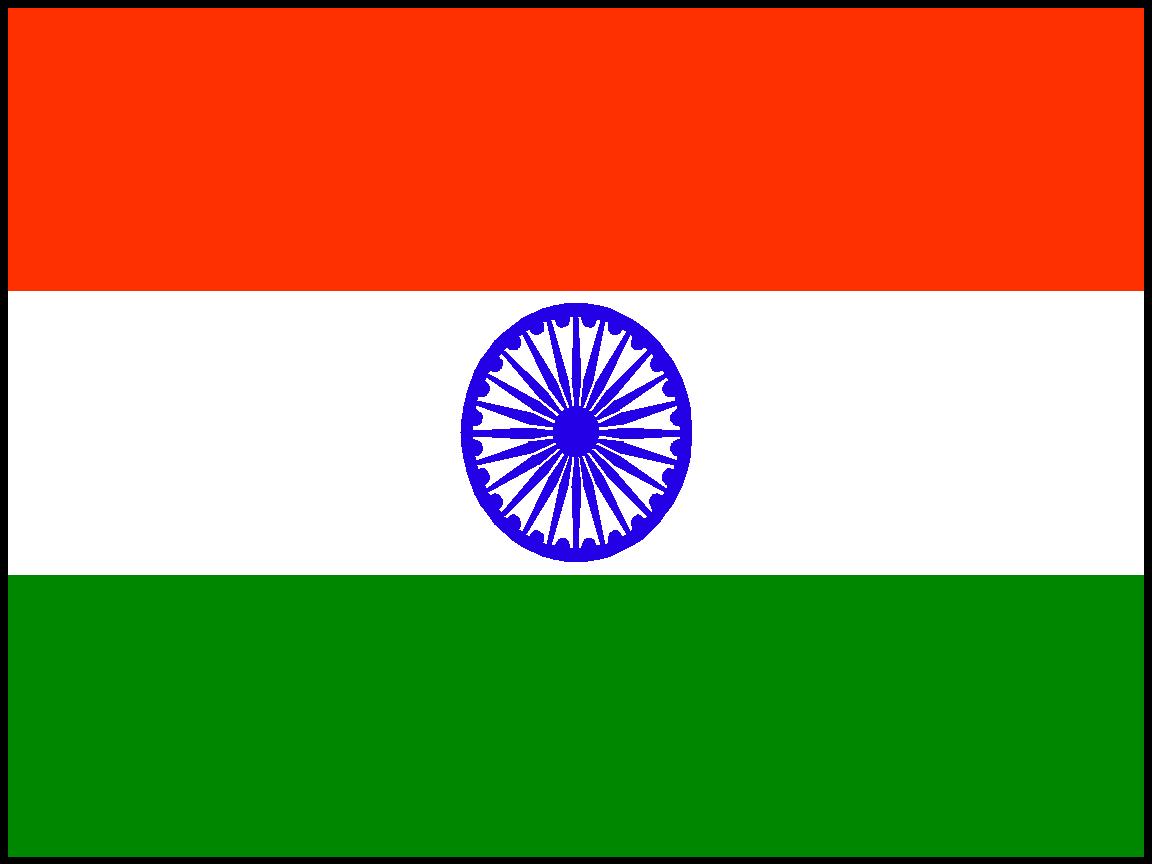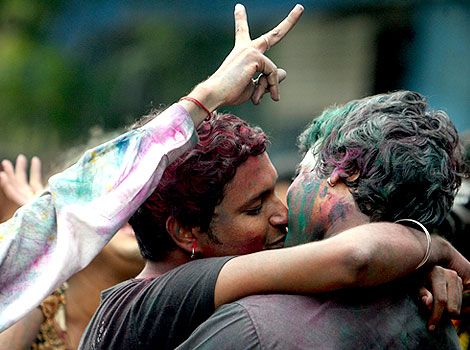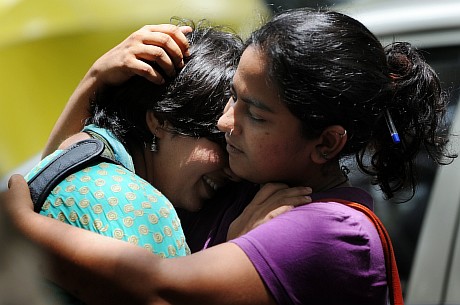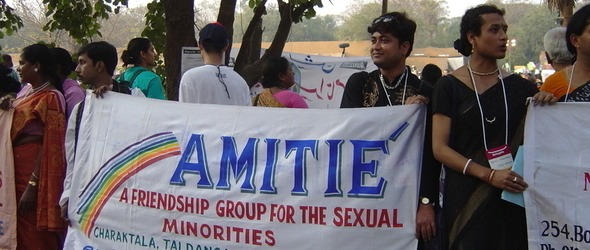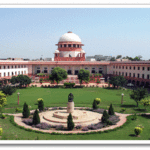The Delhi high court’s decision in 2009 legalizing consensual homosexual acts was a powerful example of judicial wisdom. However, in 2013 that decision was set aside when two Supreme Court justices (out of 29) ruled otherwise. Countless legal professionals and India’s LGBT community were appalled. Five years later in 2018 the full Supreme Court reversed its decision and legalized homosexuality. Such is the changing world.

Posted here are previous reports about the on/off fate of homosexuality in India. The ‘final’ verdict from the Supreme Court in 2018 was a victory for truth and equality throughout the country: homosexuality is now a legal status, no longer a crime.
From the New York Times: (2018)
“India’s Supreme Court on Thursday unanimously struck down one of the world’s oldest bans on consensual gay sex, a groundbreaking victory for gay rights that buried one of the most glaring vestiges of India’s colonial past… gay Indians are to be accorded all the protections of the Constitution… Gay activists said they needed to move carefully. The next step, they said, will be to push for more equality in the workplace. Gay marriage, they said, is still a long way off. In their ruling, the justices said homosexuality was “natural.” They also said that the Indian Constitution was not a “collection of mere dead letters,” and that it should evolve with time…”
—————————–
Presented here are four separate stories from four different perspectives regarding the 2009 decision.
Part 1: Social Implications
Part 2: Personal Reactions
Part 3: Religious Reactions
Part 4: Legal Issues
Part 1: Social Implications
By Pratap Bhanu Mehta
The writer is president of the Centre for Policy Research, Delhi express@expressindia.com
There come moments in the life of a nation when it has to confront its deepest prejudices and fears in the mirror of its constitutional morality.
The Delhi high court´s judgment in Naz Foundation vs Union of India, decriminalising private, adult, consensual homosexual acts, does just that. The judgment is a powerful example of judicial craftsmanship. It is, unusually amongst recent judgments that are constitutionally significant, clear and precise. It embodies the right combination of technical rigour in thinking about the law, with a persuasive vision of the deepest values those laws embody.
There will be an appropriate time for a detailed legal analysis of the judgment. Many will, doubtless, latch on to the judgment as offending something called our tradition or our values. But to interpret it this way would be a mistake.
What the court says is this. Under our constitutional scheme, no person ought to be targeted or discriminated against for simply being who they are. If we give up this value, we give up everything all of us cherish: both our liberty and our right to be treated equally. This judgment is defending our values.
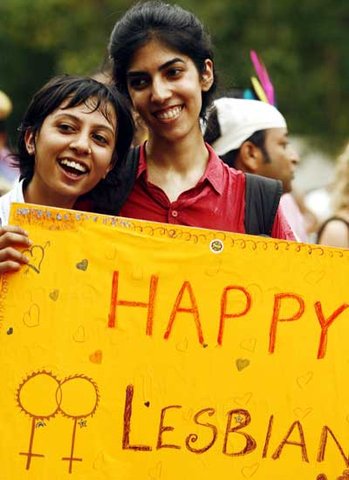 Simply put, the judgment says that the state has no presumptive right to regulate private acts between consenting adults. It protects privacy. That is our value. The judgment says that individuals should not feel so stigmatised that they are unable to seek medical help. That is our value.
Simply put, the judgment says that the state has no presumptive right to regulate private acts between consenting adults. It protects privacy. That is our value. The judgment says that individuals should not feel so stigmatised that they are unable to seek medical help. That is our value.
The judgment is first and foremost a defence of liberty, equality, privacy and a presumptive check on state power. It is a feature of these values that they are secure only when they are enjoyed by all. Privacy cannot be genuinely protected if the state is given arbitrary power over some groups; equality cannot be realised if invidious distinctions between citizens persist; rights of liberty cannot be genuine if they apply only to all those who are alike.
The essence of toleration is that each one of us can be safe from the fear of stigma, discrimination, persecution, only when all of us are safe; otherwise what we get is a counterfeit toleration. So let it be clear: this judgment is not about a minority, not about valorising a lifestyle, it is about the values that made us who we are as a nation. Neither the detractors of this judgment, nor its defenders for that matter, should forget the fact that it is in the name of a genuine common morality that
this decision can be defended.
We should not minimise the fact that social change in matters as delicate as sexuality is difficult to negotiate in any society. The judgment is admirably tactful in pointing out simply one fact: the state has not been able to prove that it can demonstrate that serious harms result as a consequence of these privat acts.
Claims of such harm are often causally unfounded, based on prejudice and often even less plausible than harms that result from many of the practices we do tolerate. At least on this much there is a consensus amongst the 126 nations who have decriminalised this practice before India. Even for those, otherwise uncomfortable, at least this much should be enough to ground the basic legal claim the court has made. There ought to be at least overlapping consensus on this point.
The discourse on toleration this has generated is revealing. There is the usual assortment of religious leaders who are appealing to their traditions. One thing should be clear: a claim can have no standing simply because it is made on the grounds of religion or, as in the case of the VHP, tradition. Without saying so, the court has made this abundantly clear. And it will be interesting if this secular logic is now followed through in all cases pertaining to equality and liberty. The court has fore-grounded personal autonomy as a constitutional value, and potentially set the stage for questioning community practices that impede this value.
The second strand of discomfort with the case is more interesting and could potentially be a resource in sustaining the social legitimacy of the judgment. This strand is not so much intolerant, but is simply uncomfortable at having to take a position on the issue. Its mode of tolerance is a kind of benign neglect, “Don´t ask, don´t tell.” This may not be a perfect normative position. Nor may it be an option in modern society.
What they are resenting is not so much the decriminalisation, as much as the need to discuss and take a stand. They do not want to discriminate or stigmatise; what they would like is, to use an old-fashioned phrase, a certain modesty in sexual matters of any kind. This anxiety is in a more general sense inescapable. Our society will have to find intelligent ways of dealing with it. But it would be a mistake to necessarily brand this anxiety as a form of intolerance. In its own ways, this discourse of modesty might sustain
the kind of tolerance that simply says, “Let it be.”
But now that the court has given a judgment, this very same diffident group would rather not have another polarising debate. Politicians rushing to overturn this judgment might as well take into account the fact that some seeming discomfort may not reflect genuine sentiment against decriminalisation. If you want a “traditional” argument you could say this.
In India, tolerance, when it worked, was a product of a kind of benign neglect: to each its own. It is a colonial law that, by bringing the state in, went against the possibility. The court certainly has a vision of an equal and inclusive society, and it may be too far-fetched to say that all of us are ready for it. But at the very least, by getting the state out of private consensual adult relations, the court allows for this more modest, but not insignificant, kind of toleration to take place.
There will be other interesting technical implications of the arguments the court has used. Some will see in the court´s emphasis on non-discrimination grounds for greater state intervention in regulating relations amongst private parties. Others might argue that the court´s application of the “strict scrutiny” test potentially protects private parties from easy state intervention.
But these are matters for the Supreme Court to resolve in different cases. But for now, we should be thankful that the Delhi High Court has shown great legal and moral clarity. There will be opposition from self-appointed custodians of tradition. But the least we can do is say: accept the judgment and move on.
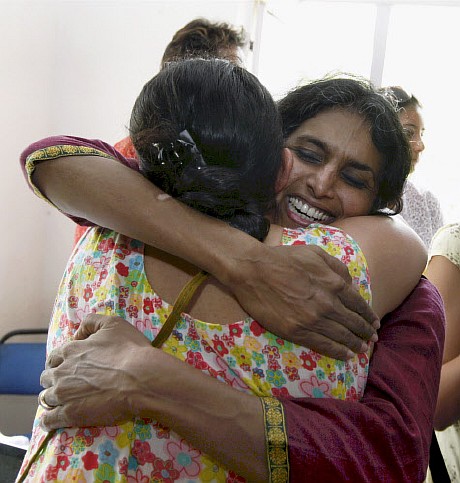
From: GayBombay Yahoo Group
gaybombay@yahoogroups.com
July 4, 2009
GayBombay’s Happiest Ever Party!
By “Vikram” vgd67@yahoo.co.uk
I should have posted this yesterday, but I was recovering – and I’m guessing so were many others – from GB’s happiest party ever.
No question — there was such euphoria, everyone smiling and laughing and unable to believe that they were there at such a time after the verdict. Everyone was hugging each other and yes, maybe the hunks got a few more hugs, but really there were hugs for everyone.
We didn’t know whether we should book Karma (nightclub) for a party. When we heard the night before that the verdict was due we wondered whether to book it, or if that was pre-guessing the verdict. What if the celebration turned out to be a wake. Dee decided to take a risk and got Karma provisionally booked.
Then I got the news – from a lawyer friend who managed to smuggle his cell into the court and texted me before the judge finished speaking -and Dee was one of the first people I called. He called Karma at once and not only booked it, but negotiated with them for a special, once ever victory deal of Rs200 only.
And I’d like to give Karma’s management full credit here. We have probably done more parties with them than anywhere else, and they have got a good relationship with our crowd. So when we called and explained why we wanted it low, they agreed, cutting out any special margins, so that they were only getting the basics from drinks sales.
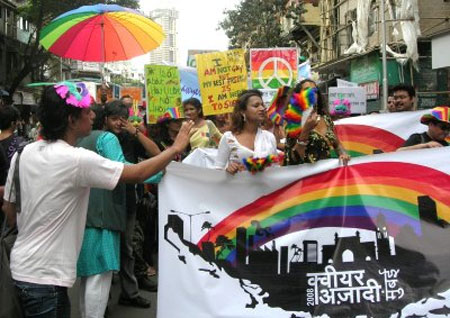 (They even topped it, by giving free servings of their excellent thin crust pizzas around midnight when everyone was getting the munchies. Normally that cost is built into the cover, but this time it wasn’t so they were really taking a loss on it, but they did it without being asked).
(They even topped it, by giving free servings of their excellent thin crust pizzas around midnight when everyone was getting the munchies. Normally that cost is built into the cover, but this time it wasn’t so they were really taking a loss on it, but they did it without being asked).
We still didn’t know if people would come. We were giving everyone just a couple of hours notice, we didn’t have time to do more publicity, it was middle of the week, it was raining… all reasons for people not to come.
But they came… and they came… and they came… Normally the line at the entrance dies down after around 11, but this time there were people coming almost till the end.
I guess everyone felt like we did, that we just needed to party! It was one of the most mixed parties I’ve ever seen. Old queens who never thought they’d see this in their lifetimes rubbed shoulders with just-legal (in more ways than one) young gay guys who could hardly believe that such an archaic law still existed to control their lives.
Our lesbian friends turned up in force – and with jalebis (fried sweets). Our two friends S&S who run Azaad Bazaar which sells queer merchandise, considered setting up their stall, but then decided that this night they just wanted to party.
So they ordered nine kilos – yes! – of jalebis and hauled it to the party in huge tokris (baskets) and went around like fisherwomen with baskets on their heads, offering it to everyone. Even more amazingly, even the most body conscious gym queens happily accepted and stuffed their faces!
People came from all groups, like Salvation and Humsafar, and the evening was crowned when our one and only Lakshmi landed up. She had been at the press conference with Celina in the afternoon, then went to different TV studios to do shows and then to Humsafar’s office in Vakola where there was an impromptu Pride march, but she still made it all the way to town. “How could I not come, my darlings?!” she declaimed as she sashayed in.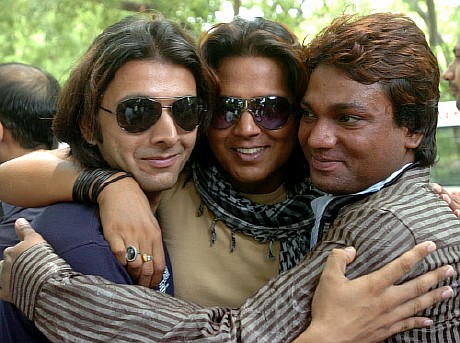
There were journalist friends who’d come – it was too big a story for them not to check it out. One of them told me how she’d been to Voodoos and there was almost no one there, and while they were hanging around one sleazy guy came up and whispered: “Do you want boys with big dicks?” I suppose its something to know that verdict or no verdict, Voodoos never changes! But they were happy to come here and soon were partying, their reporting forgotten.
It didn’t seem like it could get better, but towards the end it did. The DJs had been hauled at the last minute, so we didn’t know who we were getting. They were OK, and were responding to the crowd, but were a bit clueless so they didn’t know exactly what to play until we climbed up and very pointedly pointed out.
Then, almost at the end, they started… Summer of 69 (appropriate since the Stonewall Riots happened in the summer of 1969), Dancing Queen, Gloria Gaynor and all the other great old gay hits. And the crowd went wild. Many people were sitting in the seating area on the other side of the corridor, but when they heard this they all rushed to the dance floor and soon everyone was just dancing in joy…
I’m sure GB will have many other great parties, but it will be hard ever having another one as happy as this! Thanks for everyone who helped it happen!
Times of India
http://timesofindia.indiatimes.com/articleshow/4736152.cms?frm=mailtofriend
4 July 2009
Homosexuality Immoral, but not Criminal say Religious Leaders
Delhi/Mumbai
In the first flurry of reactions, religious leaders appeared to be slamming the de-criminalization of gay sex. But while most conservative scholars and clerics remain opposed to homosexuality as an article of faith, many say that they aren’t advocating making it a criminal act as Section 377 of IPC did.
Writer and philosopher Deepak Chopra told TOI from his home in New York, “A new morality must evolve that is based on a true understanding of human nature, that is also consistent with its biology. Homosexuality has been part of the human condition for as long as human beings have existed. The Delhi High Court should be congratulated for making a decision that finally catches up with our times.”
Then, while Delhi Catholic Archdiocese has described homosexuality as “unnatural”, it says it has nothing against its de-criminalization. Spokesperson of Delhi Catholic Archdiocese, Father Dominic Emmanuel, told TOI, “Homosexuality is a sin – as opposed to a crime. But we believe that those who indulge in it should be treated with respect and compassion.”
In a newspaper article, Father Dominic was even more forthright. “It needs to be made clear that the Christian community does not (repeat it does not) treat people with homosexual tendencies as criminals. Nor does it believe that they can be regarded on par with criminals. Therefore, the church has no serious objection to the repealing of Section 377.
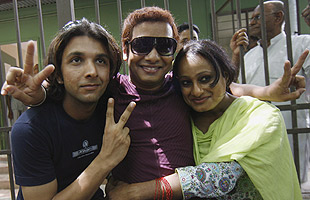 “The Vatican´s stand on this is quite clear: ‘Every sign of unjust discrimination in their regard should be avoided’,” wrote Father Dominic.
“The Vatican´s stand on this is quite clear: ‘Every sign of unjust discrimination in their regard should be avoided’,” wrote Father Dominic.
Similarly, some Muslim clerics and scholars, too, favour de-criminalization of homosexuality, saying that while Islam does not permit homosexuality, this doesn’t mean it should be equated with criminality.
“The Quran condemns homosexuality, but doesn´t prescribe any punishment for it. It’s a sin, not a crime. Sin is between Allah and the sinner, but crime concerns the entire society. So, sexual minorities should be left to their conscience. They are answerable to Allah for their act and should not be treated as criminals,” said Islamic scholar Asghar Ali Engineer.
Maulana Abu Zafar Hassan Nadvi, a cleric, too accepts that since the Quran is silent on the punishment for homosexuality, it should be treated as an irreligious, immoral act. “Every non-religious act is not liable to be punished. Just as we don’t pronounce death for atheists, homosexuals should be left alone until they get reformed,” said Maulana Nadvi.
Some clerics maintain that since Indian state is secular, it should not press for laws guided by religions. “Why should we expect that what applies in Saudi Arabia or Iran must also apply in India in regard to punishment for homosexuality? As a religious person, I condemn homosexuality. But I don´t have the right to declare homosexuals criminals,” said Maulana Zaheer Abbas Rizvi, a Shia scholar and member of the All India Ulema Council.
Said Deepak Chopra, “What is religion? And what is morality? Religion is nothing more than cultural mythology… A religion that gets frozen and is not consistent with our current understanding of evolution, biology or cosmogenesis ceases to serve people and becomes a self-righteous, immoral force in society. Hence all religions have become quarrelsome, divisive and idiotic.”
From: GayBombay Yahoo Group
gaybombay@yahoogroups.com
July 4, 2009
GayBombay’s Happiest Ever Party!
By “Vikram” vgd67@yahoo.co.uk
In the aftermath of the verdict many of us are having to debate it, both privately and publically with often very hostile people. Its probably sadly true that the really hostile will not change their minds, but the battle is really for the undecided or those willing to listen, who will be hearing the debates.
Many people in the community are really good and practiced at this, but many are doing it for the first time so I thought it would be useful to share some of the points that we have found effective in debate. Wendell, who’s going on We The People tomorrow, asked me to do a quick summary of pointers for him and I’m giving them below. They’re based on points and rejoinders I’ve seen and read coming up in many debates.
Please note I have done this at absolutely top speed so Wendell could get them before leaving for Delhi. I am sure there are mistakes and things that we can and should discuss within the community. But I’m really looking at what will be effective in the cut and thrust of public debate.
Please go through them, suggest corrections and modifications. Please add other points that have come up in your own debates and rejoinders to them, or more effective ones that those that I’ve cited. If you have found anecdotes and debating tactics, ways to appeal to the audience, that help, please suggest them. And please feel free to use any of them for your own debates:
Here are just a few pointers to some of the arguments that are being used against the judgment:
– its against Indian culture
The people who are saying this are the ones who are reflecting a Victorian interpretation of Indian culture. As the verdict explicitly edit said, this is a return to Indian traditions of tolerance and inclusiveness. It is the intolerance being shown by the homophobes that isn’t Indian. Here are links to two articles written after the judgment on homosexuality and Hindu Culture that might help:
http://www.hindusta ntimes.com/ StoryPage/ StoryPage. aspx?sectionName =RSSFeed- Views&id= 71e162fa- 3015-4c27- 9c11-0b367b3689f d&Headline= Hinduism+ and+gays% 3A+Acceptance% 2C+yes.+Approval %2C+no
http://timesofindia .indiatimes. com/India/ When-gayness- was-out-in- open-not- a-matter- of-guilt/ articleshow/ 4731112.cms
– its going to harm us all
How? As the judges noted in the judgment, the government and other opposing parties have simply failed to prove the harm that removing the law would cause. On the contrary the harm was proven by the petitioners who gave many testimonies of queer people whose lives were devastated by their being gay.
– if everyone was homosexual we would cease to exist
But everyone isn’t homosexual! Studies have shown that homosexuality exists in a minority of the population and probably always has. It shows up in many animal species, so its certainly not unnatural. There have always been gay people and they don’t stop societies from existing – they just make sure that societies have more stylist clothes and better food and more interesting entertainment options (OK, terrible stereotypes, but it might get you a laugh).
A good Indian counter is with hijras. There have definitely been hijras in India from ancient times. They are mentioned in the Ramayana and Mahabharata. But Indian society continued to exist and for that matter hijras continued to exist, even though they couldn’t have children. That shows that homosexuality is part of the natural variations that happen in species.
– homosexuals are banned by all religions
Not true. There are many religions like Judaism, Buddhism and Hinduism that are essentially silent on the subject of homosexuality . Proscriptions that exist in them can often be traced to recent trends in them, like the Victorian reformers of Hinduism who tried to make it closer to Christianity.
Some of the things they did were good, like removing customs like sati, but some were bad, like reducing any rational discussion of sex. But that the work of those reformers did show was that religions can be renewed and refreshed and the real danger is trying to stop this process. Fear of homosexuality should not stop such changes that are needed to help these religions adapt to modern society.
One more point: a common preoccupation with these religions was not homosexuality but procreation. When communities were small they needed to have more children to grow. But two fundamental things have changed:
(a) the communities are no longer small. I don’t think anyone will argue that India is suffering from a lack of procreation
(b) modern science and legal systems have made it possible for gay and lesbian couples to have children, either through surrogacy – which is booming in India – or by adopting children. Many gay and lesbian couples want to have children and now they can try.
– but it will harm the children
Er, how? Many studies show that children from gay or lesbian couples are better off because their parents are more likely to be together and take their parenthood seriously. Think about it – who is going to take parenthood seriously, a gay or lesbian couple who have had to fight to be recognised as a couple and have children and who really know the value of being parents, or a pair of young straight people who got married and had kids because it was arranged or because they got pregnant, but they didn’t really think if they wanted to spend the rest of their lives together. ‘
– homosexuals are paedophiles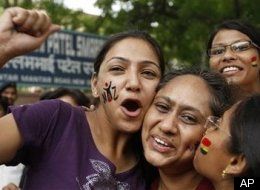
All studies on child sex abuse show that most abuse is heterosexual and for that matter usually happens within the family. The most high profile cases of same sex paedophilia happen either within the Catholic priesthood, which is so busy fighting homosexuals it doesn’t want to look at the problems inside its own institutions, or from sex tourists who go scot free because they can bribe the police, who are anyway too busy looking for unthreatening homosexuals to persecute.
– it will lead to gay marriage
This verdict is not a verdict for anything other than decriminalising homosexuality. Its possible that the gay community may want to fight for marriage, but that’s another battle. (You should use the example you gave of the girlfriend of that foreigner who was told she had no rights after he died)
– it will lead to more AIDS
The best answer is the one the judges themselves gave during the arguements. One of our opponents was fulminating about how removing 377 would increase AIDS, and one of the judges commented drily, “You’ve had it on the books all these years and it hasn’t done much to stop AIDS”.
Changing the law will allow anti-AIDS NGOs to work without fear of being arrested as happened in Lucknow a few years back. Instead of gay men being forced to have furtive, quick and unsafe sex, they can now do it with care ad condoms. And people who are often pushed into taking risks and having unsafe sex because they are depressed and don’t have a sense of self worth, will not become more confident and take fewer risks.
– its not needed, the law was not being used
It was definitely being used, both directly and indirectly. You can give the example from your own state, where the law is used all the time by the police to make money by terrorising foreigners. They use the justified fear of paedophilia, which must be tackled, to target gay men, who they threaten under 377 and extort money. In the process the paedophiles often go scot free, because the police are too busy to tackle them or because they know they can buy them off.
You could cite the Desmond Hope case. If you remember, a couple of years back this young guy was arrested by the Goa police and charged under 77. He had been doing nothing wrong, just chatting with an Indian guy, but the police had stopped him to see if they could get some money off him by claiming he had broken some small rule (I think it was about the type of bike he had rented) – a common scam in Goa.
But when they realised he was gay, they saw the chance of making real money and claimed he was sleeping with the Indian guy who was a minor (which he wasn’t). The Indian guy was suitably terrified into helping the police. Desmond was put in jail for three months as lower courts refused to give him bail because 377 was such a seious offence.
– its only relevant in Delhi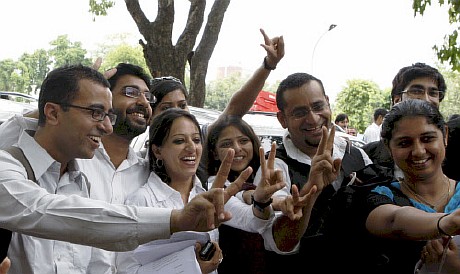
This is disputed, here’s a link to a legal argument:
http://timesofindia .indiatimes. com/India/ Is-HCs-gay- ruling-applicabl e-to-all- states/articlesh ow/4735189. cms
But you could use the Desmond Hope case here too. Desmond’s partner had got in touch with us and after the lower courts didn’t give bail we helped take the bail application to the Goa High Court where Justice Britto immediately granted it on the grounds that:
(a) the Indian guy was not a minor so there was no child sex abuse angle, and
(b) 377 was a law that was currently being debated in the Delhi High Court and could be on its way out, so it was not as serious an offence as the lower courts thought.
So if this case can help in the jurisdiction of another High Court even before it was delivered, consider its impact when it has been decided and with a judgment of such thorough, constitutionally grounded quality. (Desmond got bail, and later managed to get his case dismissed entirely).
OK, I think that covers most points. I’ll only just add Pratap Bhanu Mehta’s excellent op ed piece from today’s Indian Express which makes the most important point of all – that this is not just a victory for gay people, but for the human rights of us all: it’s about all of us.
